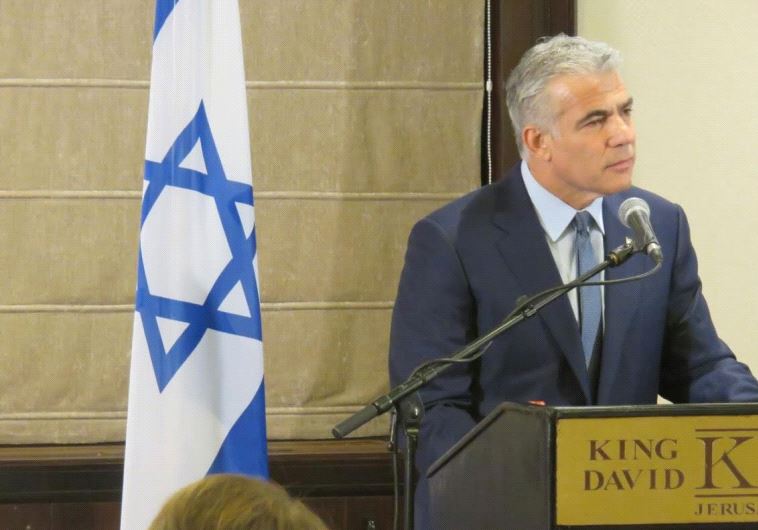Lapid: ‘Guardian’ delays Mideast conflict solution
"Separating from the Palestinians is existential for Israel's future, and if I am in a position to do it, I will because I am a patriot," Lapid said.
 Yair Lapid at a meeting with the Foreign Press Association at Jerusalem’s King David Hotel.(photo credit: YAIR ZIVAN)Updated:
Yair Lapid at a meeting with the Foreign Press Association at Jerusalem’s King David Hotel.(photo credit: YAIR ZIVAN)Updated: